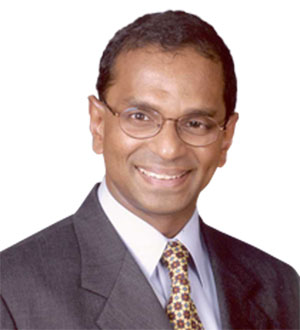Manu Bhaskaran, the director of Centennial Group International and founding director and CEO of Centennial Asia Advisors discusses Asean’s economic prospects
Will Southeast Asia be able to sustain such high economic growth rates as seen in the past?
Asean should enjoy higher growth this year as the recovery in global demand boosts exports. However, the domestic side of the Asean economies faces some headwinds.
In some countries, such as Malaysia, tighter fiscal policies will cool demand while in others, such as Indonesia, tighter monetary policies will hurt. However, on the whole, outside Thailand, where political tensions are likely to remain high enough to dampen business and consumer spending, the region is set to do well.

Where do you see the biggest economic dynamism?
In terms of economic growth in the coming few years, Myanmar, the Philippines, Cambodia and Laos are all doing well, albeit from a low base. Vietnam has put some of its problems, such as inflation and the weak external accounts, behind it and is beginning to tackle problems in its financial sector, so it could also enjoy a rebound in growth later.
What are the biggest risks at the moment?
Domestic problems are a worry. There are political tensions or uncertainties around – Thailand’s political crisis is difficult to resolve, Indonesia has presidential and parliamentary elections and Myanmar faces some issues relating to amendments to the constitution to allow Aung San Suu Kyi to run for the presidency.
There are also some imbalances in the economy, though these are not so large as to pose a direct risk, such as high consumer debt in several countries and real-estate sectors that are beginning to cool.
Are you concerned that the Fed’s tightening of its monetary policy will lead to larger capital outflows?
There will be some rotation of capital back into developed markets. This is inevitable and bound to affect currencies as well as bond and equity prices. However, this problem will pass.
It is not likely to be a prolonged situation and the main impact will be restricted to Indonesia, whose continuing current account deficit makes it more dependent on capital flows. For most of the region, the global recovery will eventually be more important than the short-term damage from capital outflows.
Should Asean try to become less dependent on China’s economic fortune?
Like all prudently managed economies, Asean economies should also strive to be as diversified as possible. They have to balance between leveraging off China’s growth against exposing themselves excessively to just one source of growth. In most cases, Asean economies are indeed highly diversified.
Should Asean integrate with two speeds?
In reality it will. Asean’s integration is a long process that does not end in December 2015 with the establishment of the Asean Economic Community.
